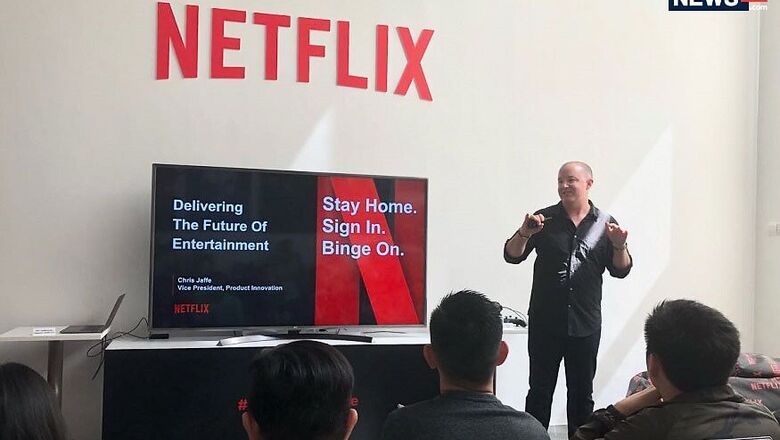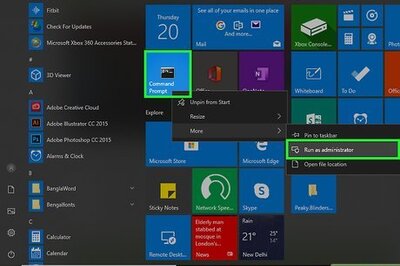
views
As per the American entertainment company Netflix, while consumers access their favourite TV shows and films across a number of electronic devices in the age of streaming, the television still endures as the primary viewing device for consumers across Asia Pacific. “As entertainment shifts online, consumers are discovering that they have more control over their viewing experiences than ever before. What they’re looking for today is choice, quality and greater flexibility, and these demands are driving new trends that are shaping the future of entertainment," said Chris Jaffe, Vice President of Product Innovation, Netflix. Today, Netflix users across Asia Pacific are using between three and five different internet-connected devices for their entertainment needs, ranging from smartphones to smart TVs. It is clear that no single device dominates the future of entertainment. Instead, it is about contextual entertainment, where consumers access their favourite shows on any device they want, in a way that fits seamlessly with where they are connecting from.
With the pivot towards contextual entertainment, streaming on TV devices has grown with more than a third (34%) of Netflix viewing hours in India through connected TVs. Smart TVs lead the charge as the most popular connected TV device. This is followed by media streaming devices such as Apple TVs, Rokus or Chromecasts and game consoles like as Xboxes and PlayStations. Even the evolving set-top box has become a popular choice for Netflix members in the region. “We are moving into an era of multi-device connectivity and contextual entertainment" Jaffe adds.
Despite increasing mobility, the TV remains the centrepiece of the consumer’s entertainment experience with the shift from the linear to a connected world. Consumers are now discovering a new world of entertainment in their homes on connected TVs. “People have always enjoyed watching TV and this won’t change anytime soon. The beauty of connected TVs is that they’re able to exploit the best part of the conventional linear TV experience while leveraging all of the benefits of connected technology. Consumers can now enjoy big screen time at home that is personalized to their unique tastes and preferences, on-demand, immersive and interactive. As consumers discover this with Netflix, the more they love their connected TV experience." said Jaffe.
Across the Asia Pacific region, Netflix finds that while the majority of membership signups are through mobile devices and laptops, consumers move on to discover the connected TV experience. Within six months of subscription, 42% of accounts’ primary viewing in India became connected TVs. These members across the region are also spending twice as long watching on their connected TVs as they do on their mobile devices. This behaviour points to the growing demand for connected TV viewing and relatedly, sales of Smart TVs have increased 170% over the last year in India.
Innovation in TV technology is also driving audio-visual entertainment experiences right in consumers’ homes. Consumers can now also access top-quality entertainment on home theatre systems, sound bars and headsets. Jaffe also added, “These audio-video innovations come at a time when there is a growing library of high-quality content available for streaming. Netflix has endless hours of Ultra HD 4K and High Dynamic Range (HDR) content, and more than half of our catalogue already supports 5.1 surround sound. We have also just announced our support for Dolby Atmos three-dimensional sound."
Titles on Netflix that support Dolby Atmos include Okja, BLAME!, Death Note. Over the next few months, the Stranger Things Season 2, Marvel’s The Punisher and Bright (starring Will Smith) will also join Netflix’s library to further enhance the home streaming experience.
Watch Video: Review Apple iPhone 8 & 8 Plus | iPhone 8 Plus Camera | News18 Tech



















Comments
0 comment